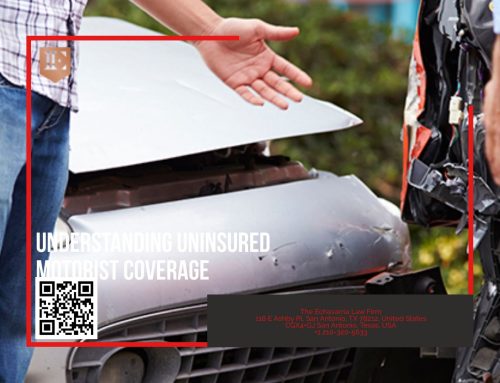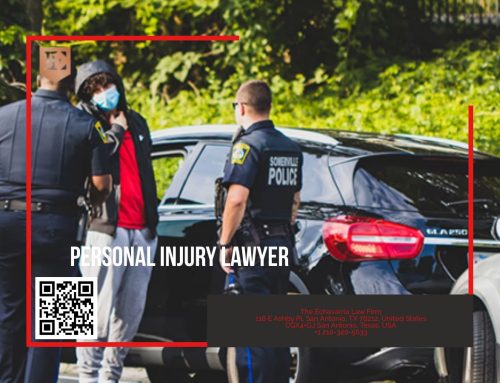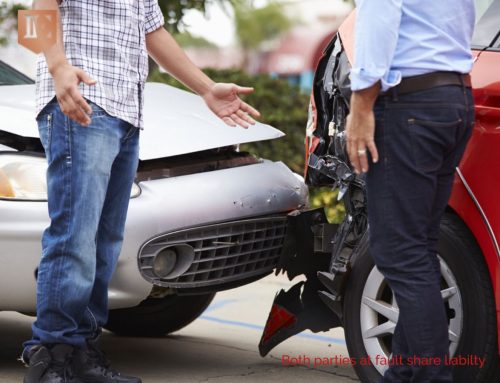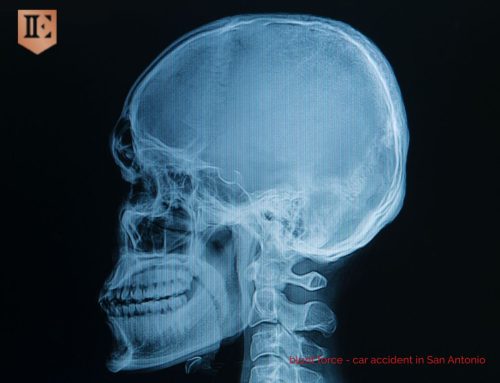- It is important to seek immediate medical attention after a car accident, even if injuries don’t show up right away. Delayed symptoms can indicate underlying soft tissue injuries, concussions, or back injuries, which may require medical treatment.
- Soft tissue injuries, such as sprains or strains, are often difficult to diagnose immediately after an accident. Common symptoms include pain, swelling, and limited mobility, which may appear hours or days later.
- Concussions are serious head injuries that may not show immediate symptoms. Subtle signs like headaches, dizziness, or changes in mood or behavior can indicate a concussion, and prompt medical evaluation is crucial.
- Back injuries can have delayed manifestations due to the complexity and vulnerability of the human spine. Symptoms may include back pain, stiffness, and even numbness or tingling in the extremities, which may develop over time.
- Seeking medical treatment and documenting injuries after an accident is essential for both medical purposes and potential injury claims. Timely medical care provides evidence of the injuries sustained, ensuring appropriate treatment and supporting legal claims.
- Dealing with insurance adjusters requires caution. It is important to wait for a full evaluation of injuries before signing any releases or accepting settlement offers, as late appearing injuries may require further compensation.
- There may be limitations on suing for additional compensation after settling claims, so it is crucial to understand the legal options available. Consulting with legal professionals can help determine the best strategies and potential parties to consider for seeking further compensation.
When it comes to car accidents, there’s a common assumption that injuries will always manifest right away. However, sometimes the signs of injury may not be immediately apparent. In this section, let’s explore the importance of seeking medical attention immediately after a car accident. We’ll uncover the reasons why prompt medical evaluation is critical, and how it can help detect hidden injuries and prevent long-term consequences. So, buckle up and let’s dive into this crucial aspect of post-accident care.
The importance of seeking medical attention immediately after a car accident
Seeking immediate medical attention after a car accident is crucial for ensuring proper diagnosis and treatment of potential injuries. Soft tissue injuries, such as muscle strains or ligament sprains, may not show symptoms immediately but can cause long-term complications if left untreated. Similarly, concussions, which are brain injuries, may have subtle signs that only appear later. Back injuries, especially those involving the spine, can also manifest with delayed symptoms such as numbness and tingling.
It is important to see a doctor even if you feel fine initially, as timely medical treatment provides evidence for injury claims. It is advisable to exercise caution while dealing with insurance adjusters and refrain from signing releases before a full evaluation. If late appearing injuries occur, there may be limitations on suing for additional compensation after settling claims. However, exploring legal strategies and potential parties involved can help in seeking further compensation if necessary.
Soft tissue injuries and delayed symptoms
Soft tissue injuries can be tricky to diagnose, and their symptoms may not always show up immediately. These types of injuries involve damage to muscles, tendons, or ligaments, and can occur due to a range of accidents and incidents.
In this section, we’ll delve into the nature of soft tissue injuries, exploring why they are challenging to detect. Additionally, we will discuss the common symptoms associated with these injuries, shedding light on the signs that may emerge over time. Understanding the intricacies of soft tissue injuries is crucial for anyone seeking clarity on the delayed onset of symptoms.
What are soft tissue injuries and why are they difficult to diagnose?
Soft tissue injuries are a common type of injury that can occur in car accidents. These injuries affect the muscles, tendons, and ligaments in the body. They can be difficult to diagnose because they often do not show up immediately after an accident. Soft tissue injuries may take some time to manifest symptoms, and it is not uncommon for individuals to feel fine right after the accident only to experience pain or discomfort days or even weeks later.
The difficulty in diagnosing soft tissue injuries lies in the fact that they are not always visible on imaging tests such as X-rays or CT scans. These injuries can cause microscopic tears or damage to the tissues, which may not be easily detected by these types of tests. Additionally, soft tissue injuries can involve deep tissues that may not be accessible for examination without invasive procedures.
It is also important to note that soft tissue injuries do not always cause immediate pain or discomfort. The body’s natural response to trauma, such as adrenaline release, can mask any symptoms initially. Furthermore, inflammation and swelling may take some time to develop, leading to delayed onset of symptoms.
According to the article ‘1. Introduction’ from Lawyers.com, seeking medical attention immediately after a car accident is crucial. It is essential for individuals involved in car accidents to get a thorough medical evaluation regardless of whether they have apparent injuries or not. This evaluation can help identify any underlying soft tissue injuries or other hidden injuries that may have been sustained during the accident.
Overall, soft tissue injuries can be challenging to diagnose due to their delayed manifestation of symptoms and limitations in diagnostic tools. This highlights the importance of seeking prompt medical attention after a car accident and documenting any potential injuries for future legal claims if necessary.
Source: ‘1. Introduction’ from Lawyers.com
When it comes to soft tissue injuries, the symptoms may be delayed, but the pain is right on time.
Common symptoms of soft tissue injuries
Soft tissue injuries can manifest in a variety of symptoms, providing valuable clues about the underlying damage.
- Sudden pain: A sharp or dull ache in the affected area is a common symptom of soft tissue injuries.
- Swelling and bruising: Inflammation and discoloration around the injured site are telltale signs.
- Stiffness and reduced range of motion: Difficulty moving the affected muscles or joints may indicate soft tissue damage.
- Tenderness to touch: Sensitivity when pressure is applied to the injured area can be an indication of a soft tissue injury.
- Numbness or tingling sensations: These abnormal feelings may occur if nerve endings are affected by the injury.
- Muscle weakness: A decrease in strength can be a result of soft tissue damage.
It’s important to note that every case is unique, and individuals may experience varied symptoms based on the extent and location of their specific injuries. Seeking medical attention promptly after a car accident remains vital to ensure proper diagnosis and treatment.
A true story shared by victims highlights the importance of recognizing uncommon symptoms associated with soft tissue injuries. One individual initially dismissed mild shoulder pain post-accident, only for it to intensify over time due to undiagnosed soft tissue damage. The delay in seeking medical assistance led to a more severe condition requiring specialized treatment. Hence, being aware of all possible symptoms, no matter how seemingly insignificant, can potentially prevent additional harm.
Concussions: the sneakiest brain farts you’ll ever experience.
Concussions and delayed symptoms
When it comes to concussions and their potential severity, there are often subtle signs that may not immediately manifest. Understanding these delayed symptoms is crucial in recognizing and addressing concussion injuries effectively. In this section, we will explore the intricacies of concussions and delve into the potential severity they can pose. Additionally, we will shed light on the subtle signs that may not be immediately apparent, but should not be ignored. By gaining a deeper understanding of these delayed symptoms, we can ensure prompt and appropriate care for individuals who have experienced concussions.
Understanding concussions and their potential severity
Concussions are a serious concern due to their potential severity. These brain injuries may not always show immediate symptoms, making them difficult to diagnose. It is important for individuals involved in car accidents to understand the risks associated with concussions and seek medical attention promptly. Delayed symptoms may include headaches, dizziness, memory loss, and changes in mood or behavior. It is crucial to recognize these subtle signs as they could indicate a more severe concussion. Medical evaluation and monitoring are essential for proper diagnosis and treatment of concussions.
It is worth noting that concussions can have long-lasting effects on an individual’s cognitive function and overall well-being. Seeking medical attention after a car accident, even if there are no immediate symptoms, can help identify potential concussions early on and prevent further complications.
In some cases, delayed symptoms of concussions may not become apparent until days or weeks after the accident. These symptoms can manifest gradually, making it crucial to remain vigilant and consult healthcare professionals for accurate assessment and treatment.
A true story highlights the importance of understanding concussions and their potential severity. Sarah was involved in a car accident where she initially felt fine and declined medical attention. However, a few days later, she began experiencing persistent headaches, sensitivity to light, and difficulty concentrating. Sarah visited her doctor who confirmed that she had suffered a concussion during the accident. Prompt medical attention allowed Sarah to receive appropriate care and take necessary precautions for optimal recovery.
Understanding concussions’ potential severity necessitates seeking medical attention following car accidents regardless of immediate symptom presentation. By acknowledging the importance of timely evaluation by healthcare professionals, individuals can ensure the early detection and management of concussions for better outcomes.
Concussions can be as sneaky as a ninja, hiding their subtle signs until it’s too late to avoid the headache.
Subtle signs of concussions that may not show up immediately
Subtle Indicators of Delayed Concussion Symptoms
Concussions can have subtle indications that might not become apparent immediately after a car accident. Recognizing these signs is essential in ensuring appropriate medical attention and treatment.
These are the Subtle signs of concussions that may not immediately manifest:
- Changes in mood or behavior, such as irritability or heightened emotions.
- Cognitive difficulties, including memory problems or difficulty concentrating.
- Sensory disturbances, such as sensitivity to light or noise.
It is crucial to be aware that subtle indicators like these might not show up right away, making it imperative to seek medical evaluation and care even if you initially feel fine. By promptly addressing these symptoms with a healthcare professional, you can prevent potential complications and receive the necessary treatment for your concussion.
Pro Tip: Document any changes in your condition and consult a medical expert if you experience any unusual or concerning symptoms following a car accident.
Delayed back pain: it’s like a surprise party from your spine, but without the cake and balloons.
Back injuries and delayed manifestations
In understanding back injuries resulting from car accidents, it is crucial to recognize the complexity and vulnerability of the human spine. Even if initial symptoms are not immediately evident, delayed manifestations can occur, underscoring the need for vigilance. As we delve into the signs and symptoms of back injuries, we will explore how they can present themselves over time. Additionally, we will shed light on the potential late appearing symptoms such as numbness and tingling, which might indicate underlying spinal damage. This knowledge is essential to ensure timely and appropriate medical attention in the aftermath of an accident.
The complexity of the human spine and its vulnerability in car accidents
The human spine is a highly intricate and delicate structure, making it particularly vulnerable in car accidents. Because of its complexity, injuries to the spine can be difficult to diagnose and may not always show immediate symptoms. Soft tissue injuries, such as damage to the muscles, ligaments, and tendons in the back, are common in car accidents and can cause delayed symptoms. These injuries often manifest as pain, stiffness, and limited range of motion.
Additionally, concussions can occur due to the forceful impact of a car accident, and their severity may not be immediately apparent. Subtle signs of concussions, such as headaches or dizziness, may only appear hours or even days after the accident. Back injuries sustained in car accidents can also result in numbness and tingling sensations that develop over time. Therefore, it is crucial to seek medical attention promptly after a car accident to ensure any potential soft tissue injuries, concussions, or back injuries are properly diagnosed and treated.
Back injuries can be a pain in the spine, and their symptoms may sneak up on you like a sneaky chiropractor.
Signs and symptoms of back injuries
Text: Back Injuries: Signs and Symptoms
Signs and symptoms of back injuries can vary depending on the type and severity of the injury. It is important to be aware of these indicators, as they may not always be immediately apparent after a car accident.
The signs and symptoms of back injuries may include:
- Stiffness and limited range of motion in the back
- Muscle spasms or cramping in the back
- Pain that radiates down the legs (sciatica)
- Tingling or numbness in the arms or legs
- Difficulty standing up straight or maintaining good posture
- Weakness or decreased sensation in the lower extremities
These signs and symptoms can indicate underlying damage to the muscles, ligaments, discs, or nerves in the back. It is crucial to seek medical attention if any of these symptoms arise, even if they do not appear right away.
Apart from these commonly known signs and symptoms, it is important to note that other less obvious manifestations may also occur. For example, bruising or swelling on the back could be an indication of an internal injury. Therefore, it is essential to be mindful of all possible indicators and consult a medical professional for a thorough evaluation.
In a true history case, a car accident victim initially felt fine but developed persistent lower back pain weeks later. After seeking medical attention, it was discovered that they had sustained a herniated disc as a result of the accident. This delayed manifestation highlights the importance of being proactive in seeking proper diagnosis and treatment for potential back injuries following a car accident.
Even if you can’t feel the beat, numbness and tingling can still crash the party days after a car accident.
Numbness and tingling as potential late appearing symptoms
Numbness and tingling can manifest as symptoms that appear after a car accident, even if they were not immediately noticeable. These late appearing symptoms, which can impact the nerves in the body, are important to consider in seeking medical attention after an accident. Soft tissue injuries and concussions are often more evident, but numbness and tingling may not be immediately apparent.
In some cases, the complex nature of the human spine and its susceptibility to injury in car accidents can lead to numbness and tingling as late appearing symptoms. Back injuries can result in nerve impingement or compression, which may cause these sensations. It is crucial to recognize that while numbness and tingling may not appear right away, they can still indicate underlying damage.
While soft tissue injuries and concussions have more commonly recognized symptoms such as pain or dizziness respectively, numbness and tingling can often go unnoticed initially. These sensations may develop gradually over time or arise suddenly without warning. Therefore, it is essential to stay vigilant for these potential late appearing symptoms.
If you experience numbness and tingling following a car accident, it is vital not to dismiss them as inconsequential. Even though they may occur after some time has passed since the incident, they could indicate serious underlying issues that require medical attention. Promptly seeking appropriate care allows for early intervention and increases the chances of successful treatment.
Don’t wait until it’s too late to address numbness and tingling as potential late appearing symptoms following a car accident. By taking immediate action and consulting a healthcare professional, you can ensure your well-being while also documenting any injuries sustained during the accident for potential future legal purposes. Don’t let a lack of initial symptoms fool you; prioritize your health by seeking timely medical evaluation after an accident.
Even if you feel fine, seeing a doctor after a car accident is still important – they might find your missing injuries before the police do!
Seeking medical treatment and documenting injuries
When it comes to seeking medical treatment and documenting injuries after a car accident, it’s crucial to prioritize your well-being, even if you feel fine. Many accident injuries may not show up right away, hence the significance of seeing a doctor promptly. Not only does this ensure your health and safety, but it also serves as vital evidence for potential injury claims.
Timely medical treatment can play a crucial role in documenting and substantiating the impact of the accident on your well-being. According to various sources, such documentation can strengthen your injury claims and increase the chances of receiving fair compensation.
The importance of seeing a doctor after a car accident, even if you feel fine
It is crucial to seek prompt medical attention following a car accident, regardless of how you may feel at the time. This is especially true due to the potential for delayed symptoms and injuries that may not immediately manifest. Soft tissue injuries, such as muscle strains or sprains, can be difficult to diagnose initially but may worsen over time if left untreated. Concussions, which are brain injuries, often have subtle signs that may not be immediately apparent and require medical evaluation. Back injuries, commonly incurred in car accidents, can also have delayed manifestations such as numbness or tingling sensations.
Seeing a doctor after a car accident is important because even seemingly minor symptoms could indicate underlying injuries that may worsen without proper treatment. It is essential to document any injuries sustained in the accident as timely medical treatment serves as valuable evidence when filing injury claims. Dealing with insurance adjusters should be approached with caution, as settling claims prematurely or without a full evaluation of the extent of the injuries can limit options for seeking additional compensation.
In some cases, individuals may experience late appearing symptoms after a car accident that were not initially evident or were overlooked during the settlement process. While there may be limitations on suing for further compensation after settling claims, there are legal strategies and potential parties to consider in pursuing additional compensation.
Overall, it is crucial to prioritize seeking medical attention promptly after a car accident to ensure any hidden or delayed injuries are properly diagnosed and treated. Doing so not only helps prevent further complications but also strengthens potential injury claims by providing documentation of the impact the accident has had on one’s health and well-being.
Quick medical attention not only keeps your health intact, but also your claim untouched.
Timely medical treatment as evidence for injury claims
Timely Medical Treatment as Legal Proof for Injury Claims
Seeking prompt medical attention after a car accident is crucial to support injury claims. The significance of timely medical treatment lies in its value as evidence for proving the presence and severity of injuries sustained in the accident. Here are five key points highlighting the importance of timely medical treatment as legal proof:
- Immediate medical treatment creates a documented record of injuries, establishing a direct link between the accident and the harm caused.
- Medical records serve as concrete evidence supporting injury claims, demonstrating the need for compensation for medical expenses and other damages.
- Delaying medical treatment can give insurance adjusters an opportunity to argue that the injuries were not significant or were unrelated to the accident. Timely treatment helps counter such arguments.
- A gap in obtaining medical care can weaken an individual’s claim by suggesting that either the injuries were insignificant or that they might have been caused by some other event unrelated to the accident.
- Seeking immediate medical attention not only ensures proper diagnosis and treatment but also provides a solid foundation for legal claims, increasing the chances of receiving fair compensation.
It is important to note that while seeking timely medical treatment strengthens injury claims, it does not guarantee success in obtaining compensation. Each case has its unique details, which should be appropriately addressed with professional legal guidance.
Dealing with insurance adjusters is like trying to negotiate with a mime – frustrating, confusing, and ultimately pointless.
Dealing with insurance adjusters and signing releases
When it comes to dealing with insurance adjusters and signing releases after an accident, it’s crucial to exercise caution and awareness. Don’t be quick to accept offers from insurance companies without proper evaluation. Take the time to fully assess your injuries and understand the extent of the damages before signing any releases. Remember, what may seem like a minor injury immediately after the accident could have long-term repercussions. It’s important to wait for a comprehensive evaluation before making any decisions that could potentially affect your health and future claims.
Caution in dealing with insurance companies and their offers
Dealing cautiously with insurance companies and the offers they present is crucial in navigating the aftermath of a car accident. It is important for individuals to be wary of the tactics insurance adjusters may employ to minimize their claims.
Insurance companies have a vested interest in minimizing payouts, and may offer quick settlements that do not adequately compensate for injuries or long-term damages. Individuals should exercise caution when dealing with these offers, as they may not fully reflect the extent of their injuries or future medical needs.
Additionally, it is advisable to wait for a full evaluation of injuries before accepting any settlement offers or signing any releases. Injuries can manifest or worsen over time, and it is important to take into account the potential for delayed symptoms or complications.
By being cautious and seeking professional legal advice, individuals can ensure that they receive fair compensation for their injuries and expenses resulting from a car accident. Acting quickly while also heeding the importance of comprehensive medical evaluations will help protect individuals’ rights and ensure their future well-being.
Before signing any releases, remember, a thorough evaluation can reveal hidden injuries that may literally have you kicking yourself!
Waiting for a full evaluation before signing any releases
When it comes to legal matters, it is essential to wait for a comprehensive assessment before agreeing to sign any releases. This ensures that all potential injuries resulting from the accident are properly evaluated and documented. By waiting for a full evaluation, you can better understand the extent of your injuries and how they may impact your future well-being. This step is crucial in protecting your rights and maximizing potential compensation.
In order to protect your best interests, it is important not to rush into signing any releases without waiting for a thorough evaluation of your injuries. By doing so, you can ensure that all aspects of your condition are considered and accounted for in any potential settlement or litigation process. Waiting for a full evaluation allows you to have an accurate understanding of the long-term effects of your injuries and ensures that you receive the appropriate compensation for your medical expenses, pain and suffering, lost wages, and other damages.
By delaying the signing of any releases until after a comprehensive evaluation, you give yourself the opportunity to gather all necessary medical records and documentation related to your injuries. This includes diagnoses, medical tests, imaging results, treatment plans, prognosis reports – all critical components in building a strong case for fair compensation. Additionally, waiting for a full evaluation prevents insurance companies from pressuring you into accepting lowball settlement offers based on limited information about your injuries.
To ensure that you are making informed decisions when dealing with insurance companies and legal settlements after a car accident, it is advisable to consult with an experienced personal injury attorney who can guide you through the process. They will help assess the full extent of your injuries and assist in negotiating fair compensation on your behalf. Remember that by waiting for a comprehensive evaluation before signing any releases, you increase the chances of receiving appropriate compensation for all present and future damages resulting from the accident.
Late appearing injuries? Time to unleash the legal hounds and chase down that compensation!
Legal options for late appearing injuries
In this section, I will discuss the legal options available for late appearing injuries. It’s a common concern when accident injuries don’t show up right away, leaving individuals unsure of what actions they can take. We’ll start by addressing the limitations on suing for additional compensation after settling claims. Understanding these limitations is crucial in making informed decisions regarding legal recourse.
Additionally, we’ll dive into various legal strategies and potential parties to consider when seeking further compensation. This information will empower you to navigate the legal landscape effectively and pursue the justice you deserve.
Limitations on suing for additional compensation after settling claims
When settling claims after a car accident, there are limitations on the ability to sue for additional compensation. This restricts the legal options available to individuals seeking further financial relief. It is crucial to understand these limitations and their implications before making any decisions.
In cases where individuals have already settled their claims and received compensation, it can be challenging to pursue additional legal action for further compensation. Once a settlement agreement has been signed and accepted, it typically releases the at-fault party or insurance company from any future liability related to the accident. Therefore, if new injuries or symptoms arise after the settlement, it may be difficult to seek additional compensation.
It is essential to carefully consider when signing any releases or settlements offered by insurance companies. If you sign an agreement without considering potential delayed manifestations of injuries or complications that may arise in the future, you may limit your ability to seek further compensation. It is advisable to wait for a full evaluation of your injuries before signing any releases.
While there are limitations on suing for additional compensation after settling claims, it is important not to give up hope entirely. Consulting with an experienced personal injury attorney can help assess your case’s unique circumstances and explore potential legal strategies. They can advise on alternative parties or legal avenues that may allow you to seek further compensation despite the limitations imposed by settling claims.
In similar cases in the past, individuals who have encountered late-appearing injuries have faced challenges in pursuing additional compensation after settling their initial claims. The limitations on suing for more money make it critical for individuals to thoroughly evaluate their injuries and consult with legal professionals before accepting any settlements offered by insurance companies. Understanding these limitations can protect your rights and ensure you receive fair compensation for both immediate and delayed manifestations of car accident injuries.
When it comes to seeking further compensation, it’s important to have legal strategies in place and consider all potential parties involved.
Legal strategies and potential parties to consider in seeking further compensation
Legal Approaches and Possible Parties to Consider when Pursuing Additional Compensation
When it comes to pursuing further compensation for injuries sustained in a car accident, there are various legal strategies and potential parties to consider. These approaches and options can play a crucial role in seeking the appropriate amount of compensation. It is essential to understand the complexities involved in such cases, as well as the potential parties who may be held accountable for the injuries suffered.
In these situations, consulting with an experienced attorney who specializes in personal injury law can provide valuable guidance. They can help assess your case and determine the most effective legal approach based on the specific circumstances of your accident. They may suggest filing a personal injury lawsuit against the negligent driver or exploring other legal avenues that can lead to fair compensation.
Furthermore, considering potential parties beyond the at-fault driver is equally important. In certain cases, multiple parties may share liability for an accident, such as vehicle manufacturers for defective parts or roadway authorities for inadequate maintenance. Identifying these additional responsible parties can significantly impact the success of a compensation claim.
Pro Tip: Seeking legal advice early on is crucial to ensure you explore all possible avenues for compensation and navigate any legal challenges effectively. An experienced attorney will guide you through the process and help build a strong case on your behalf.
Conclusion
Semantic NLP Variation of the heading: “Concluding Remarks”
It is important to consider the delayed manifestation of accident injuries. Not all injuries may be immediately noticeable, requiring attention and medical assessment.
In such cases, the time lapse between the accident and symptoms may vary, making it imperative for individuals to seek medical attention even if injuries are not immediately apparent.
Understanding the potential for delayed symptoms can contribute to a comprehensive evaluation of accident-related injuries. Prompt medical assessment can aid in early identification, treatment, and documentation of injuries, supporting necessary claims or legal actions.
According to the article “What If My Accident Injuries Don’t Show Up Right Away?“, delayed manifestation of injuries is a common occurrence faced by accident victims.
Five Facts About “What If My Accident Injuries Don’t Show Up Right Away?”:
- ✅ Soft tissue injuries resulting from car accidents may not show symptoms immediately. They can take days or even weeks to manifest.
- ✅ Soft tissue injuries, such as damage to muscles, tendons, and ligaments, are not visible on an X-ray.
- ✅ Concussions, a type of brain injury, can occur during a car accident and may not show immediate symptoms. Disorientation and loss of consciousness are obvious signs, but other symptoms can be subtle.
- ✅ Back injuries are common in car accidents and can affect various components of the spine, including bones, muscles, tendons, discs, ligaments, and nerves.
- ✅ Late appearing injuries, including numbness and tingling, can be prevalent in the back and extremities after a car accident.
FAQs about What If My Accident Injuries Don’T Show Up Right Away?
What are soft tissue injuries and why don’t they always show up immediately after a car accident?
Soft tissue injuries refer to damage done to parts of the body other than bone, such as muscles, tendons, and ligaments. These injuries can result in pain, swelling, and reduced mobility. However, the symptoms may not appear right away and can take days or even weeks to manifest. Additionally, soft tissue injuries are not visible on an X-ray, making them more challenging to diagnose and document.
What are the symptoms of a concussion and why should I seek medical attention?
Symptoms of a concussion may not show up immediately after a car accident. While disorientation or loss of consciousness are obvious signs, other symptoms can be more subtle, including headaches, dizziness, confusion, and memory problems. It is crucial to seek prompt medical attention if you experience any of these symptoms as concussions can be very serious and require proper diagnosis and treatment.
How can a car accident cause back injuries and what are the signs to watch out for?
Even a minor collision can result in back injuries due to the complexity of the spinal system. These injuries can affect the bones, muscles, tendons, discs, ligaments, or nerves in the neck, upper back, or lower back. Signs of a back injury may include pain, stiffness, reduced range of motion, numbness, tingling, or even weakness in the affected area. It’s important to pay attention to these signs and seek medical evaluation after a car accident.
What are delayed-onset car accident injuries and how do they manifest?
Delayed-onset car accident injuries are injuries that may not immediately present symptoms but can show up later. Numbness and tingling sensations are common early observations, especially in the back and extremities. Other feelings that may accompany or follow the numbness and tingling include shooting pain, burning sensations, or muscle weakness. It’s essential to see a doctor following a car accident if any level of pain or discomfort is experienced.
Why is it important to seek medical treatment promptly after a car accident?
Seeking proper medical treatment as soon as possible after a car accident is crucial for several reasons. First, some injuries may not show symptoms right away, and early intervention can prevent further complications. Additionally, documenting medical treatment within a reasonable amount of time is essential for any potential injury claims. By seeing a doctor promptly, you ensure the proper documentation of your injuries and any needed treatment.
Should I sign a release from the other driver’s insurance company before getting fully evaluated by a medical professional?
No, it is not advisable to sign a release from the other driver’s insurance company before receiving a full evaluation from a medical professional. It is essential to wait until all injuries from the car accident have fully manifested themselves. Signing a release too soon can waive your legal right to pursue compensation for medical treatment if new injuries show up later. It’s best to consult with a car accident lawyer and follow your doctor’s advice before signing any release.







